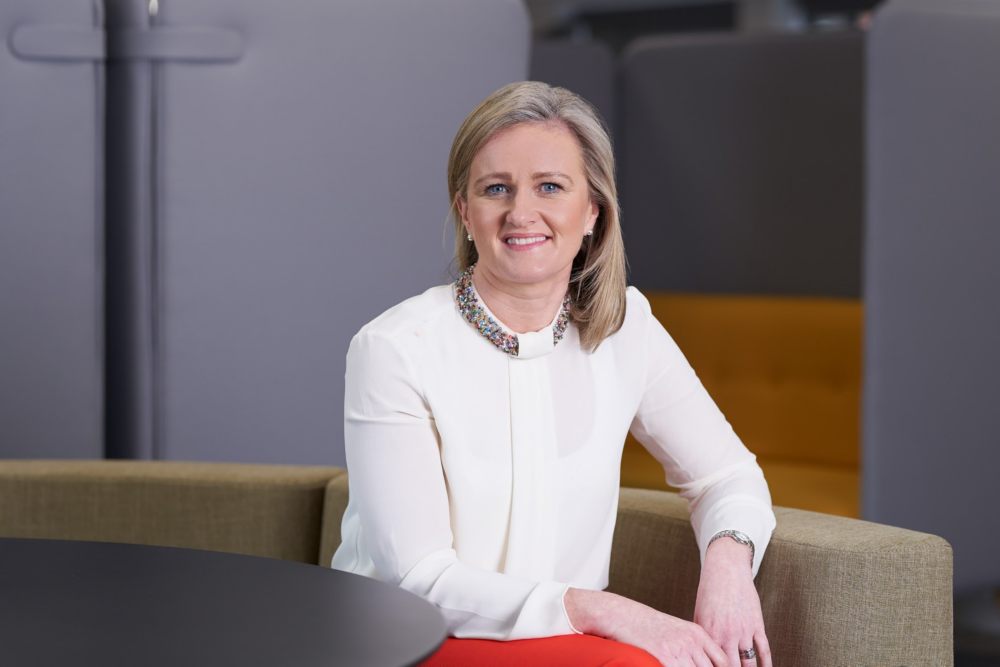Quentin Doran O’Reilly, head of Product Management at Samsung Electronics Ireland, shares his life and business lessons.
Doran O’Reilly has worked at Samsung since 2010 on the product side of the business which deals with mobile, tablet, PC and wearable technology.
He has a significant role in aligning global strategy with the Irish market. Quentin has great insight into the devices and their development.
“A failure is only failure if you learn nothing from it. Some of my biggest successes are built on what would have been seen as failures at the time”
He also has been key in driving device design for all businesses including SMEs.
Tell us about your background, what journey did you take to arrive at where you are?
I came to telecoms relatively late having spent the first part of my career in PR and event management.
I started in Vodafone Ireland in 2005 and truthfully never looked back; I was hooked on telecoms the moment I walked through the door and when Samsung came knocking six years later, I was ready to see the business from the vendor side.
Timing is everything; the first product I was involved in launching was the original Galaxy S – from the beginning, we knew it was the start of something special.
“Product development is future-facing and in order to meet customer needs, we spend a lot of time reflecting on what works or what doesn’t work”
Why are you doing what you are doing? What need are you meeting? What’s your USP?
The “why” is easy: I believe in what I am doing, I believe in the products and the people. Technology is a sector that is dynamic and ever evolving, I get to see and drive year-on-year improvement and growth and when something doesn’t work, I get to fix it, and learn from that.
I am very lucky to work for a company whose values match my own; I believe in making people’s lives better through technology, and that is at the very core of what Samsung is about. Along the way I have learnt a huge amount about process improvement and change management, I have learnt what it takes to bring some of the best tech in the world to market. Ultimately, that is Samsung’s USP – that ability to learn and grow and apply the new learnings to the next launch or hurdle or project.#
“It is okay to say ‘I don’t know’ if you don’t know the answer straight away. Go back, find the answer, and be prepared the next time the question arises”
What are your key skills and qualities that set you apart?
I have always approached my work through a data-driven lens. Product development is future-facing and in order to meet customer needs, we spend a lot of time reflecting on what works or what doesn’t work. What sets me apart is likely that I am guided by experience and curiosity.
Thanks to that experience, I know what success in all its various forms can look like. Sharing that wisdom is a particularly important and I will always do my best to bring my team on the journey to success with me.
What (or whom) has helped you most along the way? Who was your greatest mentor/inspiration?
Over the years, I have worked for a lot of great business leaders, and I have learned a little from all of them but my genuinely biggest inspiration on a day-to-day is my own team and the wider Ireland Samsung Team. I am incredibly lucky to work with a group of people who constantly set new standards in business and performance excellence.
What was the greatest piece of business advice you ever received?
It is okay to say “I don’t know” if you don’t know the answer straight away. Go back, find the answer, and be prepared the next time the question arises.
“Navigating and understanding the trends of the day can be a tricky task but that’s the nature of the game and part of the reason why I love this industry”
What circumstances/qualities/events can mark the difference between success or failure in life or business?
Outlook and mind-set play a huge role when it comes to marking the difference between success and failure. A failure is only failure if you learn nothing from it. Some of my biggest successes are built on what would have been seen as failures at the time.
What was the most challenging aspect of growing the business?
The technology industry itself can be the most challenging aspect. Navigating and understanding the trends of the day can be a tricky task but that’s the nature of the game and part of the reason why I love this industry. For me, it is about growing your knowledge base so you can deliver premium products to your loyal customer base.
“From a device or technology perspective, I believe there has been a significant shift for businesses when it comes to embracing digital transformation and new technologies. For example, we have seen AI becoming more prevalent in the workplace”
How did you navigate your business through the pandemic and what lessons did you learn?
It may sound simple but being available was the most important lesson learned. We kept communication with customers and colleagues as high as possible as we navigated our way through a very complex and challenging time, it meant we could keep moving forward ensuring we left no one behind. We have maintained that level of communication since and continue to see the benefits daily.
“I am where I am because of every decision I made at one time or another. There is very little I would change; every step, misstep and stumble has been instrumental in leading me into a career I love”
How has digital transformation been a factor in your scaling journey, and do you believe Irish firms are utilising digital technologies sufficiently?
As a technology company, Samsung is comfortable with the idea of digital transformation and being able to deliver quality services to our customers.. Fortunately, Samsung has always been at From a device or technology perspective, I believe there has been a significant shift for businesses when it comes to embracing digital transformation and new technologies. For example, we have seen AI becoming more prevalent in the workplacethe fore when it comes to incorporating AI into our business and products. I believe that Irish organisations are at the start of their journey when it comes to new technology but ultimately, it is a bandwagon we all need to get on.
If you were to do it all over again, what would you do differently?
I am where I am because of every decision I made at one time or another. There is very little I would change; every step, misstep and stumble has been instrumental in leading me into a career I love.
Who inspires you in business today?
Anyone who is trying to use technology for good, be it to protect the vulnerable like the Cilter project (a child-protection software that makes internet use safe for children) or any technology which is being used to replace fossil energy sources in favour or wind, sun or wave.
What advice/guidance do you give new hires and how do you nurture talent in your organisation?
It can be obvious, but my advice is usually the same: don’t be afraid to ask questions, ask all the questions, be curious. The second bit of guidance which I have always shared with new hires is that it is ok to make mistakes but learn from them.
What business books do you read or would recommend?
My favourite is still and might always be ‘Getting More’ by Stuart Diamonds.
What technologies/tools do you use personally to keep you on track?
My Galaxy Fold5 and a myriad of excel based trackers are my main weapons of choice.
What social media platforms do you prefer and why?
Twitter (perhaps I should say the social media platform formerly known as Twitter) has always been my go-to, I like the bite-sized updates.
What are your thoughts on where technology overall is heading and how it will apply to business generally and your business particularly?
AI is the big focus now, and I think the refinements we see in the next couple of years will help to drive hardware optimisation everywhere it is applied.
This applies as much to our internal processes and data analysis as it does to our manufactured devices such as our Galaxy phones, tablets, and laptops where we are already seeing huge advances in battery and camera thanks to AI.
Finally, if you had advice for your 21-year-old self – knowing what you know now – what would it be?
You don’t have to worry so much because it mostly works out. Oh, and get a haircut.





